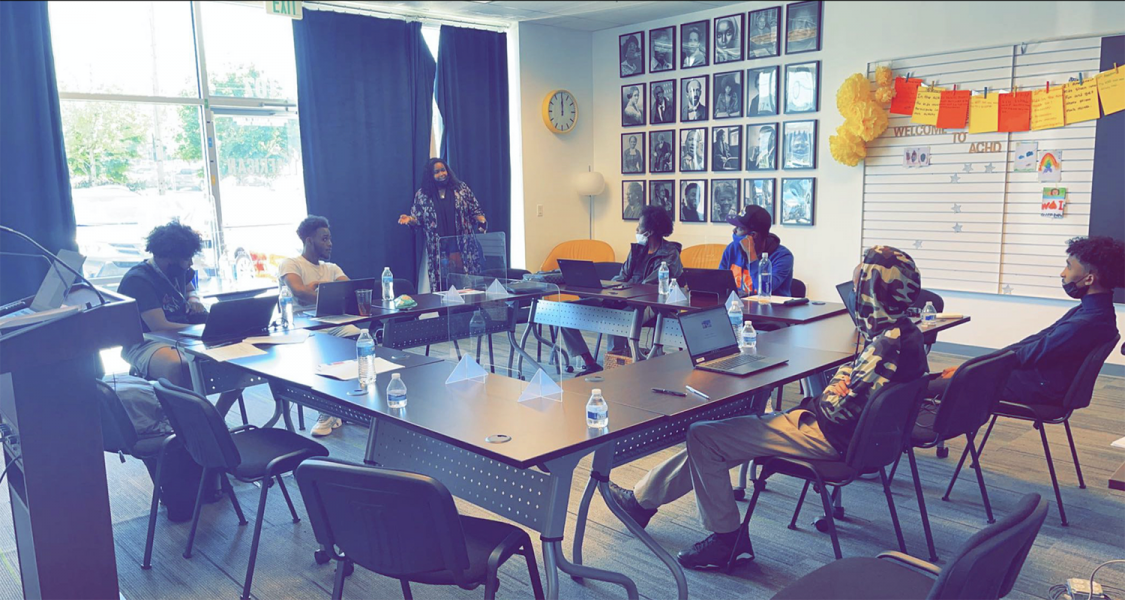
The pandemic has had a devastating impact on communities of color, with many frontline and gig economy workers finding themselves unemployed or working in settings with a higher risk of contracting COVID-19.
To connect these communities to well paying, stable employment, Seattle nonprofit African Community Housing & Development (ACHD) is partnering with the Port of Seattle to prepare members of the African Diaspora immigrant and refugee communities in South King County for job opportunities in Port-related industries.
The program, launched in 2020 with funding through the Port of Seattle’s South King County Community Impact Fund Economic Recovery Program, offers in-language job readiness training and job application assistance for technical Port-related industries such as construction and aviation. The program also supports African Diaspora students through the process of applying to and attending Renton and Highline Technical Colleges, and connecting them to the workforce once they graduate.
Removing barriers
The Port of Seattle established the South King County Community Impact Fund (SKCCIF) to develop equity-based partnerships and provide resources and support in historically underserved near-airport communities. The program awards contracts to organizations serving communities most deeply impacted by the current economic crisis for projects connected to Port-related industries.
In collaboration with African-led organizations and community leaders, ACHD works to identify and dismantle barriers to economic prosperity for the African Diaspora community.
“Economic development and access to high quality jobs is a priority for our work,” Bilan Aden, Associate Director of ACHD said. “We’ve seen how COVID has exacerbated the unemployment rate for our community. It’s a high number and it has a disproportionate impact. This program is part of our strategy to get folks back to work but not back to the way things were. We want to connect people with green jobs and higher paying jobs and solve some issues around living in substandard housing and cost burdened homes.”
Daud Ali, Workforce Development Manager at ACHD, said the program connects those who live near Port operations to well-paying jobs that offer growth opportunities. The program goals aligns with Port goals to increase equitable access to Port careers, so it can grow a workforce that represents the communities it serves and so impacted communities have access to living wage jobs near home.
Ali has helped many participants successfully apply for jobs in aviation with companies like Delta Airlines, Alaska Airlines, and American Airlines. So far, ACHD has helped employ 15 people with port-related jobs and connected six people to career retaining programs.

Soaring to new heights
When Abdifatah Ali was laid off from his job working security at the beginning of the pandemic, he had trouble finding work. Through his community he connected with ACHD's job readiness program and opened his eyes to an industry he hadn’t seriously considered before – aviation. Right away he worked with ACHD staff to beef up his resume and get comfortable with the interview process.
"I got more information than I originally came in with and it built my strength and confidence so when an interview came around I was not as nervous as I used to be," he said.
ACHD helped Ali find a short-term job and develop long term career goals. He is now attending Highline Community College studying aviation, and works part time as a baggage handler and ramp agent for Delta Airlines. ACHD helped him connect to financial aid, set up his course schedule so he can plan for the future, and stay organized with homework. He also has a network of tutors and other resources available to him.
"Having resources like ACHD is important for first generation students who may not have the resources or connections to help prepare them for the future," he said. "The program helps build confidence and skills, so we won't be scared to apply for the job of our dreams."
This support opens up opportunities for the African Diaspora community that they may not have considered before and allows participants to make a long-term plan for their future.
"When my friends compare their resume to mine, they say 'How did you do this?'" he said. "Aviation is something I was interested in, but never looked at it as a reality because I didn’t know where to start and I didn’t know where to go. Now I know what my steps are for the next few years; I have a vision and a plan laid out for myself. If you go hard you can get there. ACDH initiated that blueprint for me."










